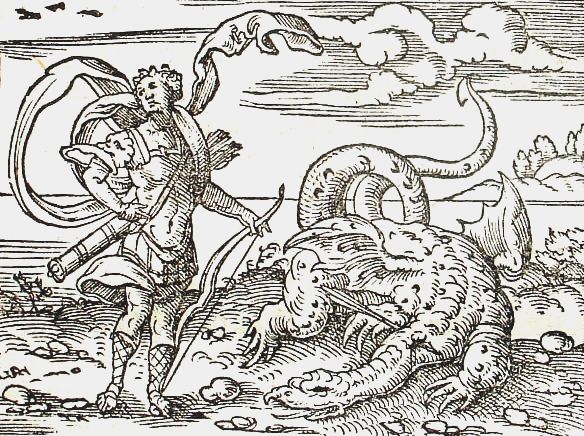While on the topic of Astrophel I had built up a few more ideas around it with some retreading over old notes.
Aster / astra / astrum - Yes this means star, however, I'm reading that the word in Latin is used in context with known named stars whereas '
Stella' is a more diminutive word referring to nondescript stars.
The codex leaves out 'Stella' so there is a chance it was intended to avoid a direct relationship to Sidney's poem and the use of 'spiralling stars' may be acting as a substitution.
Like Jorki and others pointed out, 'phel' is peculiar in that the writer chose this suffix and not 'phil'.
It was used in Sidney's poem in the masculine sense, however, there is also a word
phêl used in Welsh.
Note: Any native Welsh speakers who can clarify would be a great help
 Phêl
Phêl is a spoken variant of
pêl meaning a
ball, sphere/orb, world, or mark of honour/renown.
So in that sense the story's title could represent:
Princess - female figure of 'royalty' (ie. wielding power)
Astro - relating to the starry heavens,
Phêl - relating to a globular, spherical form.
This immediately reminds me of the cosmological Celestial Spheres.
One is the Sphere of Stars, which could be a link to the 'spiralling stars' portion of the book title.
Other candidates are the Spheres of Venus and the Moon due to their feminine mythological roots. Venus is obvious, but I think the Moon (goddess Selene/Luna) might be a better fit as there is the parallel with Seline Cavus in Legacy.
Another parallel is that the goddess Selene is pictured with a crescent moon on top of her forehead - ie. on her brow.
The codex's emphasis on a children's story, by a male author, who was 'concealing facts' is also intriguing. Riddles, kenning and metaphors are a form of concealing facts (truths). What if "children's story" is a play on words to mean it is a story
of children - not in the juvenile sense, just literally the sons and daughters of parents. This would make sense in the context of Legacy - Julia the daughter who inherits power, and Darek her father grieving his wife and lover.
There are also the mythological parallels.
The Norse story of Sól and Máni is about the sun (Sól) and moon (Máni) who are siblings and children of Mundilfari (meaning the one moving time / passage of time). In this setting, Astrophel could represent Sól as a literal 'star sphere', and the Spiralling Stars could be symbolic of her father Mundilfari, or their travels across the sky chased by the wolf Fenrir - maybe like the dragon in Julia's book?
Selene is also the daughter of Hyperion and sister to Helios (Apollo).
Keats' poem Hyperion does share influences from Paradise Lost as well as the Aeneid and Divine Comedy. The Hyperion text is abruptly broken off mid-line at the word "celestial" just as apollo receives his power - could this be what the title in the codex is relating to?
Hints for those with eyes to see:
In Hyperion, Apollo gains his godhood by looking into Mnemosyne's eyes and receives her knowledge as the goddess of memory. Apollo is the deity of Delphi. The omphalos and the children's story is described in the same paragraph of the codex - as well as this mysterious author who is claimed to be the source of riddles leading to Raxxla.
"Several versions" could refer to there being multiple versions of a mythological tale - so it could imply looking at mythological stories that focus on children of elder gods.

